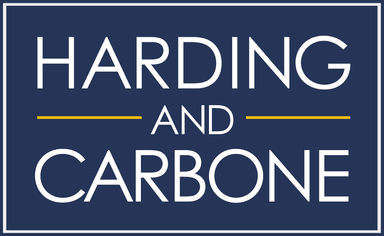
Smart Strategies To Reduce Your Property Taxes In Texas
October 5, 2025
Key Takeaways:
- Assessment Review: Checking for errors in property records is a vital step to avoid inflated tax bills.
- Exemptions Benefit: Applying for available homestead exemptions can lower taxable value and provide lasting relief.
- Professional Support: Experienced tax consultants strengthen cases, prepare evidence, and represent property owners at hearings.
Property taxes in Texas are among the highest in the country, which makes understanding how they work essential for homeowners and businesses alike. Rising valuations can place an unnecessary burden on families and property owners, especially when assessments fail to reflect the true market value of a home or commercial space. Knowing how to review your appraisal, apply exemptions, and protest effectively can make a real difference in keeping your tax bill fair.
At Harding & Carbone, we’ve been at the forefront of property tax consulting since 1992. As one of the first firms in Texas dedicated solely to property tax services, we’ve represented thousands of homeowners and businesses across the state. Our track record is built on in-depth knowledge of appraisal districts, a reputation for strong advocacy, and a commitment to securing the best possible outcomes for our clients.
Breakdown Your Property Tax Assessment
Understanding your property tax assessment is the first step toward identifying opportunities to lower your tax bill. In Texas, appraisal districts rely on mass valuation models to determine the taxable value of homes and commercial properties. While this system makes it easier for counties to process thousands of properties at once, it often overlooks the unique features of your property and that can result in overpayment.
Errors in square footage, outdated records, or missing adjustments for condition and amenities can create inflated values. For example, if your appraisal district lists your home at 2,200 square feet but official documents show 2,000, that difference may translate into hundreds of dollars in additional taxes each year. Similarly, if your property is compared against homes that have undergone recent upgrades while yours has not, the valuation may not reflect its true market position.
At Harding & Carbone, we advise property owners to review their assessments closely. Pulling the appraisal district’s records, checking them against your own, and comparing values to nearby properties are effective ways to uncover discrepancies. By knowing exactly how your assessment was calculated, you gain leverage in building a case for fair taxation.
Learn more about Harding & Carbone’s history and approach to property tax consulting by visiting our official website. With over 30 years of experience, we remain committed to helping Texas property owners secure fair valuations.
Know Your Home’s Market Value
A fair property tax bill begins with an accurate understanding of your home’s market value. While appraisal districts rely on sales data and neighborhood-wide models, these mass estimates often fail to capture the specific condition and features of your property. That gap can mean you’re paying more than you should.
Start by gathering recent sales information for homes in your area with similar size, layout, and age. These comparable properties, or “comps,” give you a baseline for what buyers are currently willing to pay. If a nearly identical home nearby sold for $335,000 but your property was assessed at $365,000, it’s a strong indication that your valuation may be inflated.
Once you’ve identified comps, the next step is adjusting for differences. A renovated kitchen, larger garage, or additional bathroom can add measurable value to one home over another. If your property lacks those upgrades, those differences should be accounted for when comparing values. Even rough estimates from contractor quotes or local pricing trends can help clarify the true market position of your home.
At Harding & Carbone, we emphasize this process because accurate, evidence-based comparisons are the backbone of a successful tax protest. By showing how your property stacks up against similar homes, you make a stronger argument for lowering your assessed value.

Apply For Homestead Exemptions In Texas
Homestead exemptions are a practical way to lower your property tax bill by reducing the taxable value of your home. These exemptions are designed to provide relief for primary homeowners and special groups such as seniors, people with disabilities, and veterans. Here’s a closer look at the most common exemptions available in Texas:
General Residential Homestead Exemption
This exemption applies to homeowners who use the property as their primary residence. It removes a portion of the home’s value from taxation, providing an immediate reduction in the annual tax bill. At Harding & Carbone, we encourage all homeowners to review eligibility carefully and file the appropriate paperwork with their county appraisal district. Taking advantage of these exemptions can lead to meaningful, long-term savings.
Over-65 Exemption
Homeowners age 65 or older qualify for an additional exemption on their residence. Beyond lowering the taxable value, this exemption freezes school district taxes at their current level, except when home improvements are made.
Disabled Person Exemption
Individuals with qualifying disabilities, as recognized by the Social Security Administration, can apply for this exemption. The benefits mirror those of the Over-65 exemption, offering significant relief to homeowners with disabilities.
Disabled Veteran Exemption
Veterans with a service-connected disability may qualify for partial or complete tax relief. The exemption amount depends on the disability rating, with 100% disability typically resulting in a full exemption.
Surviving Spouse Exemption
The surviving spouse of a U.S. service member killed in action or a first responder who died in the line of duty may be eligible for this exemption. To qualify, the surviving spouse must remain unmarried and continue to occupy the same property as their residence.
How To File A Property Tax Protest In Texas
Filing a property tax protest in Texas may feel overwhelming at first, but breaking the process into clear steps makes it more manageable. Understanding deadlines, gathering evidence, and presenting a solid case are all crucial to improving your chances of success. Here’s how the process typically unfolds:
Understand Your Appraisal Notice
The appraisal notice lists your property’s assessed value and the deadline for filing a protest is usually May 15 or 30 days from the mailing date. Reviewing this notice carefully allows you to identify discrepancies early and gives you a clear timeline for action.
Gather Comparative Data
The strongest protests are backed by data, including comparable properties similar in age, size, and features. At Harding & Carbone, we evaluate comps with precise adjustments for differences such as square footage, renovations, and condition to make sure your case reflects your property’s true market value.
Complete The Protest Form
Each county appraisal district provides a form where you can state the basis of your protest, such as incorrect valuation or unequal appraisal compared to similar properties. Submitting this form on time is essential to have your case officially considered.

Submit Your Protest
Once completed, the protest form must be filed with your appraisal district before the deadline. Many counties provide convenient online filing options, which help streamline the process and confirm your submission.
Prepare For Your Hearing
If your protest advances to a hearing, you’ll need to organize evidence and outline the key points you intend to present. At Harding & Carbone, we prepare comprehensive case files that highlight errors in appraisal records, strengthen comparisons, and present a clear valuation argument.
Navigate The Appraisal Review Process With Professionals
Even after filing a protest, the appraisal review process can be time-consuming and complex. From gathering evidence to presenting it before the review board, every detail matters. Working with experienced professionals can make a significant difference in achieving a fair outcome:
Handling The Details
Successful protests require careful documentation, from appraisal district records to comparable property data. At Harding & Carbone, we take on this preparation so property owners can avoid the stress of navigating complicated paperwork and deadlines.
Building Strong Comparisons
Surface-level comps rarely tell the full story. Our team conducts detailed adjustments for square footage, renovations, lot size, and other factors, ensuring comparisons accurately reflect your home’s market value.
Representing You At Hearings
Appraisal review board hearings can be intimidating without the right preparation. Harding & Carbone represents clients directly in these hearings, presenting the case clearly and addressing board questions with evidence-backed arguments.
Explore our range of property tax services designed to support both homeowners and businesses. From exemption guidance to full protest representation, our team provides tailored solutions backed by decades of expertise.

Final Thoughts
Texas property taxes can feel burdensome, but homeowners have practical tools to challenge inaccurate assessments and reduce their bills. By carefully reviewing your appraisal, applying for exemptions, and filing a protest backed by solid evidence, you can take meaningful steps toward fair taxation.
At Harding & Carbone, our goal is to simplify this process for property owners. With decades of experience and proven strategies, we help clients identify errors, prepare strong cases, and navigate the review process effectively. Reducing your property taxes isn’t just possible, it’s achievable with the right support.
If you’re ready to review your assessment or need professional support during the protest process, reach out through our contact page. A member of our team will provide the information you need to move forward confidently.
Read Also:
- Brazoria County Taxes: A Guide To Rates, Exemptions, And Due Dates
- How To Manage Property Taxes In Harris County
- Everything You Should Know About Galveston County Property Taxes
Frequently Asked Questions About How To Lower Property Taxes In Texas
Can improvements to my home increase my property taxes in Texas?
Yes, major renovations or additions like extra rooms, garages, or pools can raise your property’s assessed value, which may result in higher property taxes.
Do property taxes vary by county in Texas?
They do. Each county has its own appraisal district and tax rates, so two homes with the same value in different counties may have different tax bills.
Is there a limit to how much my property taxes can increase each year?
Yes, for homesteads in Texas, the assessed value cannot increase by more than 10% per year, regardless of rising market conditions.
Can commercial property owners protest taxes in the same way as homeowners?
Absolutely. Commercial property owners have the same rights to protest their valuations, and often benefit significantly from professional representation.
Are property tax consultants regulated in Texas?
Yes, property tax consultants must be registered and licensed with the Texas Department of Licensing and Regulation to represent clients in protests.
Can unpaid property taxes in Texas affect my ability to sell my home?
Yes, delinquent property taxes create a lien on your property. This lien must be resolved before you can sell or refinance your home.
Do energy-efficient upgrades qualify for property tax exemptions in Texas?
Certain renewable energy improvements, such as solar or wind installations, may qualify for partial exemptions that lower taxable value.
How long does the property tax protest process usually take?
The process can vary by county, but typically it lasts from a few weeks to several months, depending on scheduling and whether the case goes to a formal hearing.
Can I protest my property taxes every year?
Yes, Texas law allows property owners to file a protest annually if they believe their property has been overvalued.
What happens if I miss the protest deadline in Texas?
If you miss the deadline, you generally lose the right to protest that year’s valuation and will be required to pay the assessed taxes in full.
